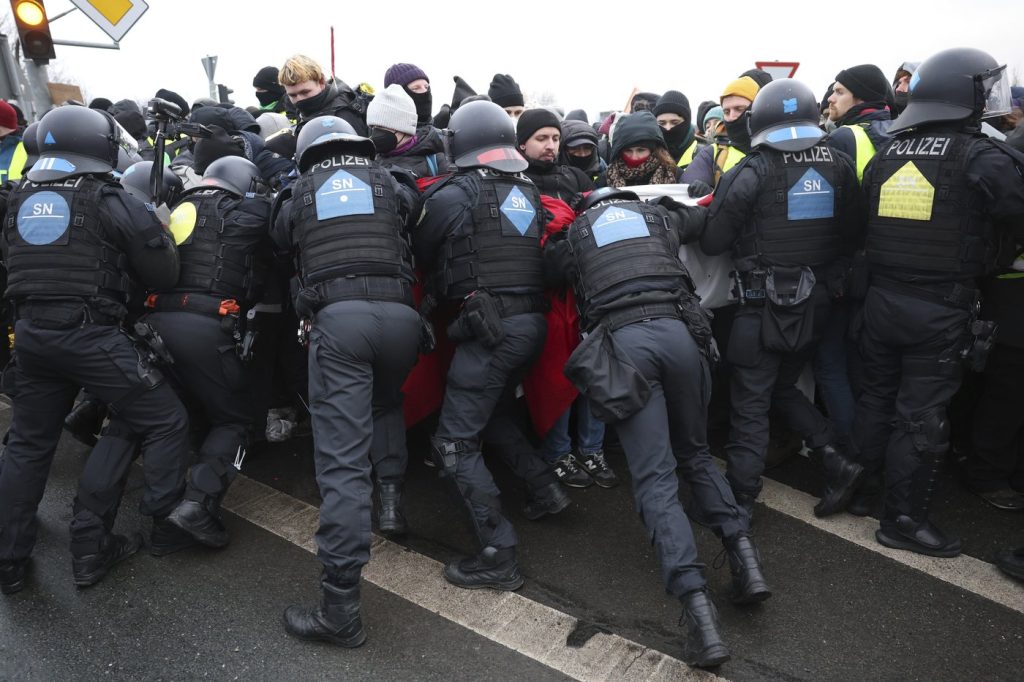On January 11, 2025, Riesa, Germany, witnessed a significant gathering of the far-right Alternative for Germany (AfD) party, coinciding with protests organized by various groups. This convention, occurring in the eastern state of Saxony—an AfD stronghold—was aimed at formally nominating co-leader Alice Weidel as the party's candidate for chancellor and solidifying its political platform in the lead-up to the elections scheduled for February 23, 2025.
The event was marked by a substantial police presence, anticipating thousands of demonstrators against the AfD's ideology. Reports from the German news agency dpa indicated that officers had to dismantle a sit-in blockade at a crossroads, and tensions erupted with some protesters throwing fireworks at police during demonstrations on the sidelines.
Current polling indicates that the AfD holds second place in the race for the upcoming election, boasting approximately 20% support. However, Alice Weidel's chances of securing the chancellorship appear bleak due to other major parties' staunch refusal to collaborate with the AfD. Leading the polls is the mainstream conservative opposition Union bloc, which is capturing around 30% of voter support. Their candidate, Friedrich Merz, is considered the front-runner to become the next chancellor.
Meanwhile, Chancellor Olaf Scholz from the Social Democrats is striving for a comeback. However, his party's support remains stagnant, ranging from 14% to 17% in various polls. Scholz currently governs a minority government following the collapse of his three-party coalition in November 2024, which was triggered by internal disputes over revitalizing Germany's lagging economy. This election cycle is notably occurring seven months earlier than it was initially planned.
The convergence of the AfD's political ambitions with the backdrop of public dissent encapsulates the current climate in Germany leading into the crucial election in February, highlighting both the public's unease and the tensions surrounding far-right politics in the nation.










